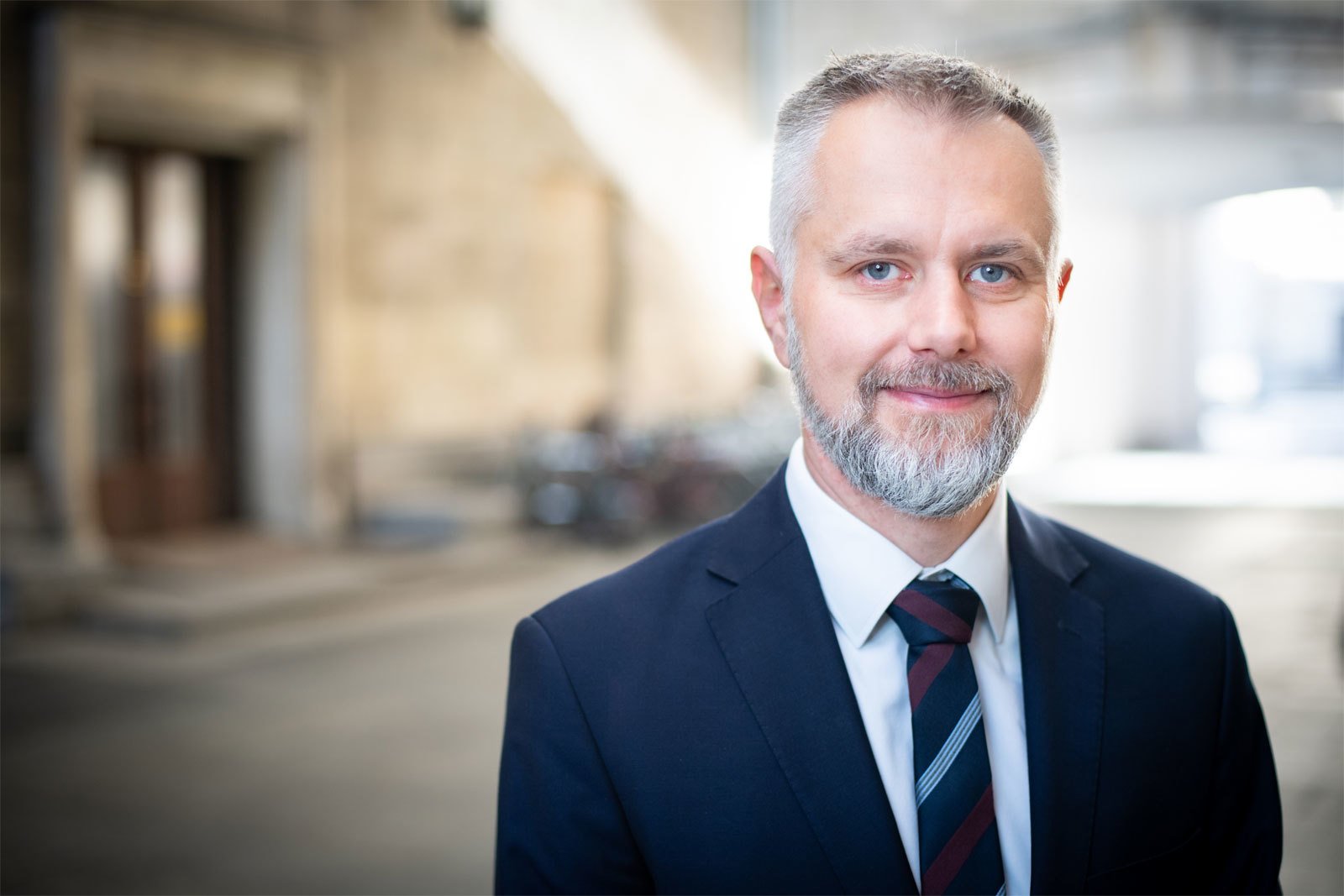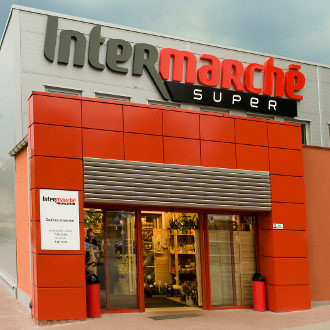How to prepare your franchise company for foreign expansion
Michał Wiśniewski is a franchise consultant supervisor and the director of PROFIT system. Mr Wiśniewski has been involved with the franchise consultancy since 1998. Michał also overlooks the sales and development of the company in foreign markets and is the creator of the Franchising.eu. We asked Michał for his expert advice on how to prepare your business for foreign expansion.
WHAT STEPS SHOULD A FRANCHISOR TAKE?
1. Starting point
Mr Wiśniewski says it all begins when the franchisor analyses their own business to figure out if their business will work internationally.
“Do they have international potential? And do they have international potential everywhere, or only in certain countries and markets? I advise franchisors to find what their best target markets are for their good and services,” he said.
With over 200 countries in the world, Michał also says you need to zoom in on your target hotspots. “It’s good to have in mind where you want to start.”
2. Trademark Registration
The second step is to look at your company’s trademark registration standing. “Many companies have their trademarks registered in only one country. They started their business domestically, and therefore had no reason to register the business elsewhere,” he said.
Mr Wiśniewski stated this is a formal requirement of any company’s expansion. Noting that it’s good to start early with this process as preparations can often take time to complete.
“In Europe it’s easier because we have one common registration in many countries. Most franchisors from the EU are looking to expand within the EU, so it’s easy with this kind of trademark registration process. But if businesses plan on moving outside the EU they may have to make an international trademark registration, and of course, in some countries it might be problematic if they use a common name.”
Example: Burger King
When Burger King moved to expand its operations to Australia, they discovered that their business name was already trademarked by a takeaway food shop in Adelaide, South Australia - who refused to give up their name. Burger King was left with no choice but to come with a new name for the continent, and is known in Australia as Hungry Jack’s. Hungry Jack’s shares the same Burger King branding and menu – but operates by a completely different name. Over the years Burger King has desperately tried to regain its worldwide operating name in Australia, with no success.
Click here for more information about Franchising regulations in the EU (and other European countries).
3. Preparing your business for internationalisation
In most circumstances, companies usually have their operating manuals and training programs in their native language. However, Michał advises his clients to translate them into English, “As it’s the best international working language.”
The translation process also gives you the chance to scrutinise your own documents. “You must carefully analyse if your rules will work in other in other countries,” said Michał. “Sometimes there are cultural differences and different habits between countries. Therefore, your documents are best presented in more general terms.”
4. Operation manual, training manuals and IT systems should be translated to English
Mr Wiśniewski advises translating your operational manual, training manuals and IT systems into English, then other countries are more likely to use them. As opposed to if the systems were left in the Polish or Swedish language, for example. Therefore, it’s essential that IT systems be translated to English as well.
If companies end up finding franchisees in other countries down the track - they are then prepared and can more easily translate documentation from English to other languages.
Michał says this is the hardest and most time-consuming part of the process. “It might not even finish before moving onto the next steps, however it’s vital to complete if you want to expand internationally.”
5. Deciding on a foreign market strategy
When it comes to deciding which foreign market strategy is best for your franchise, Mr Wiśniewski says we must first take into account the following three factors.
-
Distance
First of all, the franchisor must consider the distance between the business and the franchise. Michał reports this can be a complicated process. “Can the franchisor deliver the products, or not? Are they able to control and train the franchisee? There are many aspects to consider such as, geographical, cultural, etc.”
-
Size of the market
The second thing to consider is the size of the market you wish to enter.
“If we want to franchise in a smaller country, often a better strategy is to find one local partner who will establish five shops on your behalf. This would work in a country like Lithuania which has limited market potential.
On the other hand, big countries are more complicated to organise. Development in larger nations requires much more time and planning, as such, franchisees will need more support.”
-
Financial strategy of the international franchise
How does the franchisor wish to organise their international finance strategy?
“Does the franchisor aim to make their profit out of selling the concept? Are they willing to get the one-time payment for sharing the business know-how, etc? Are they interested in the long game, and colleting ongoing fees? Or, are they interested in selling products to franchisees and increasing their scale of production and operations?”
Here are some examples of internationalization strategies in play
“In the closest and smallest market, I would recommend having a direct franchise. In a bigger market, you’d rather have someone who looks after the whole region.
We see that large franchisors have devised different strategies for different markets. Using Burger King as the example again, they use direct franchising for the biggest European markets such as the UK, France and Germany. As key markets with huge profit potential, Burger King invests into their own operations and therefore own the companies operating their key markets. These key markets often have a lot of franchisees, so it makes no sense to outsource such large operations.
In mid-sized markets such as Poland, we see they often use multi-unit franchisees. This is a partner who’s not opening one to five stores, but rather a whole country or even multiple countries.
Franchises can function using an array of different strategies. When starting the internationalisation process you should pick the best starting strategy for your business in that moment. As your company grows and develops you can adjust different strategies to different markets.
Once you’ve picked the best starting strategy, you can start preparing the international franchise contract and financial model of the concept, such as, what are the payments between the franchisor and the franchisee, or other intermediates in-between.”
For more information about International Franchising click here.
6. Preparing an international finance contract and model
Mr Wiśniewski says, “Sorting out the finance model can sometimes be tricky.” In a regular franchise you only have to deal with agreements between the franchisor and franchisee. “When starting an international franchise,” continued Michał, “With a master franchisee, for example, it’s not always easy to divide the money between all three parties who are all wanting their maximum stake in the profits.”
In regards to the franchise contracts, Michał says agreements should be understood clearly by both parties. Therefore, he again recommends it should be presented in English.
The next element of a franchise contract is selecting the legislation jurisdiction of the agreement. “Sometimes franchisors are picking what’s easiest for them, rather than what’s the best option. We find that many franchisors select their own legislation for the contract as it’s the easiest way. But it’s not always the best solution for several reasons.”
“First of all, if there is a conflict between franchisor and franchisee, often the franchisor acts upon their own country’s legislation. But in actual fact, the contract must be recognised by the laws in the franchisee’s jurisdiction.
This is easy in the European Union, as all countries apart from Denmark recognise other EU decisions. In other parts of the world, it’s not as streamline.
“When the matter is between one or more non-EU countries, there will be no automatic recognition of existing case law and even if you’d win the matter in your own country, you have to fight it in the courts where the franchisee is based. So, don’t forget to ask yourself, will the contract work under the legislation of the new territory?”
7. Recruitment of potential partners
Once those formalities are complete, you can begin the recruitment process for potential partners. Michał stressed that, “When recruiting from your home country, the franchisor should remember that the business is far more easily identifiable, making it easier for investors to know the business and if the concept works. You also have benefits such as, word of mouth to rely on.”
Internationally, however, it’s more complicated. “The number of interested investors will naturally be less. This means the franchisor has to work harder to explain their business to attract people who will find that business interesting in a new territory,” he said.
“Franchisors should be aware that most potential franchisees choose businesses developed in their own country. There is only a small group of investors that want to franchise with international brands due to the risks of an unproven market. However, profits can be much larger if you find something new and interesting that the market wants.”
For more information on how to find franchisees click here.
8. Start-up of the business
When starting-up the new franchise point, the franchisor has to decide how to orchestrate the training process of the franchisee. “This is also kind of tricky in international franchising,” said Mr Wiśniewski. “In many businesses there is a time gap between signing the contract and launching the business. This time gap means that in some cases the training should be divided into two parts.”
1/ General training: Explaining how to prepare for the business. What is the business? Etc.
2/ Operational: The ins and outs of daily process. This should be done shortly before the launch.
“I observed clients doing it all in the one step. Sometimes the franchisee comes across a hold-up, for whatever reason. And it can happen. In some of these cases, the time gap was so long they had to be trained again.”
Keep in mind this just the beginning, on-going support will be required as per the contract.
Michał’s final thoughts on international franchising
Mr Wiśniewski believes international franchising, while daunting to newcomers, can pay dividends long term for your business and business knowledge.
“With international franchising, one of the points I share with my clients is why do we think about internationalisation? If franchises can achieve good results in their own countries, why go international?
My answer is that they shouldn’t be deterred to expand as they can use this experience to improve their business domestically.
Without broad experience it’s harder to be a market leader, as you could be missing out on trends. When entering new markets, you are often competing against other market leaders; by this, you learn how to be a better leader yourself, and by that, you learn to be a better leader your own country.
In modern economic times the market and situation can change rapidly, and many leaders of yesterday have gone out of business. Internationalisation gives you security for improvement which is important for the future and longevity of your business.”
 Michał Wiśniewski, Director of PROFIT system / "How do you know the difference between a good and a bad franchise? In a bad franchise everything finishes when the business is launched. In a good franchise, that’s when everything begins".
Michał Wiśniewski, Director of PROFIT system / "How do you know the difference between a good and a bad franchise? In a bad franchise everything finishes when the business is launched. In a good franchise, that’s when everything begins". read articles
 Grow with EXTRA SERVICES
/2025-05-22
Grow with EXTRA SERVICES
/2025-05-22
We currently operate in 15 European countries, including Poland, Germany, Austria, Slovakia, France, Spain, and others - says Jiří Bártík, EXTRA SERVICES Sales Manager.
The initial investment required to open a SmartyKids franchise ranges from €3,500 to €10,000, depending on the location and the specific setup - says Georgii Rozov, franchise director at SmartyKids Europe.
Franchisor offers comprehensive support system including specialized training and marketing support- says Ljiljana Kukec, Franchisor of Body Creator.
From a business perspective, IQ UP! offers franchisees a turnkey solution with a proven model, low initial investment, and multiple revenue streams - says Valentina Dinova, Co-Founder IQ UP!
The franchise model is specifically designed to deliver profitability from the very first day of operation - says Filip Calta, Operations Director ReFresh Bistro
most read
 Doing it better with Intermarché
/2021-08-12
Doing it better with Intermarché
/2021-08-12
With more than 50 years in the business, Intermarché is a truly European retail superpower.
Before signing a franchise deal this fall, learn about the hidden costs beyond the initial fee—renovations, equipment, and royalty fees.
Enter the world of Turkish coffee with Gönül Kahvesi. Learn about investment details, support, and why this boutique concept stands out globally.
The Fornetti Group is working to become a leader in the franchise market of frozen bakery products not only in Hungary but also in Europe.
Discover how Paul, the French bakery brand, offers a franchising opportunity with global reach.
